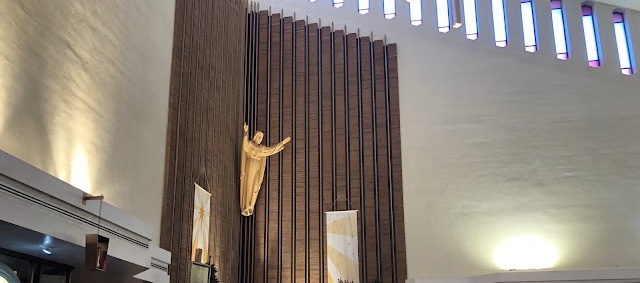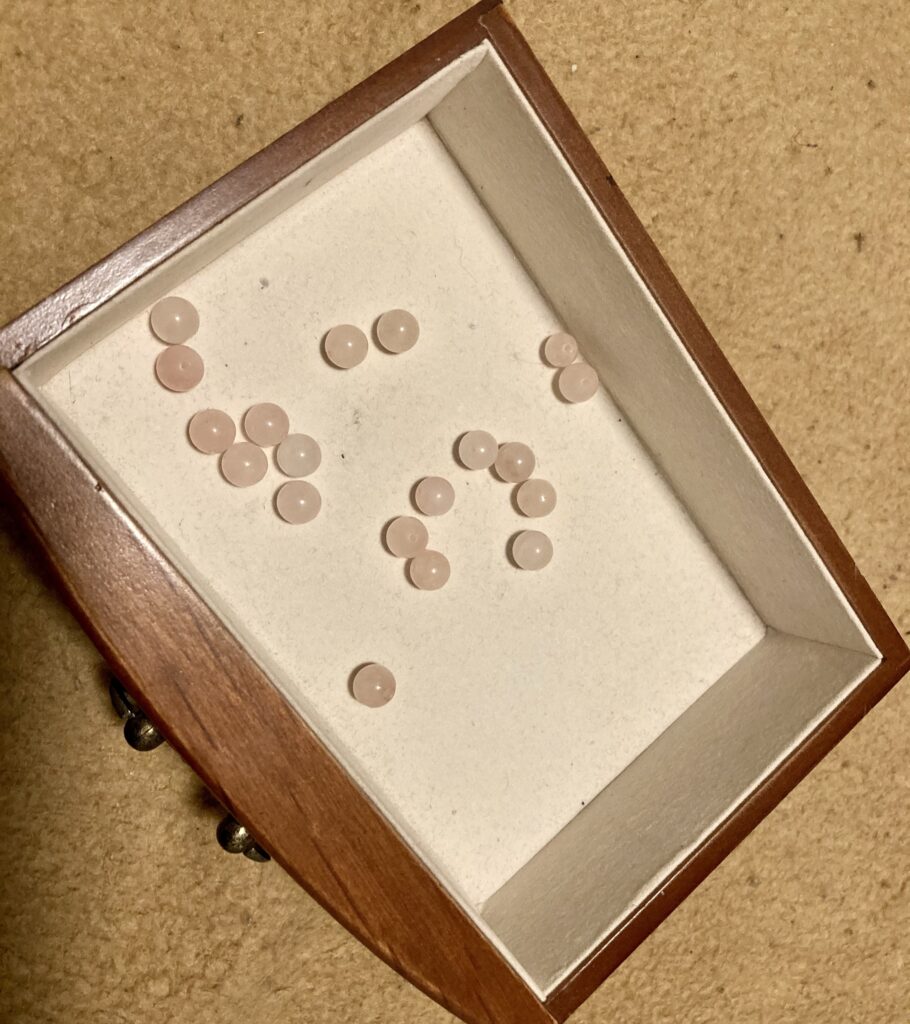((Content warning: This is a fictional portrayal of kidnap, assault, and criminal exploitation of children.))
“Mrs. Harris?” the young woman asked, drawing out my last name with an ‘eeee’ sound in place of the ‘i.’ She sounded as though Spanish was her first language.
Confused, I held the phone tighter to my ear, hoping to hear the soft voice better. All I heard was breathing. “Yes, this is her. Who is this?”
“My name is Delphine,” the breathless girl responded. “I… uh… “
Something muffled the phone on her end and I could not make out the whispering. I looked at the number on my screen again, but all it said was “private.” I couldn’t imagine what this might be about.
“Delphine, are you there?” I drummed my fingers on my granite countertop and looked around at the white and steel that made up my kitchen. I had to go collect my son from school in a few minutes, and there was no way I was going to be late. I knew all too well what could happen.
“Mrs. Harris,” Delphine’s voice came back on the phone and I started, listening hard to the voice that was barely above a whisper. “Mrs. Harris, your daughter wants me to tell you that she’s ok. She gave me your number and said you would know it was your ‘Sweet Pea’ because of the password: Pumpkin.”
My world spun.
I turned my back toward my island and slid quietly toward the floor, hugging my knees but not letting go of the phone. Tears spilled down my cheeks and my throat tightened. I fought to keep control and speak calmly. She’s alive!
“Oh!” I caught my breath and tried again. I had to try to get information. “Delphine,” I croaked, “thank you so much for calling to let me know. It means so much to me. Just to know she’s alive… Is she ok?” I bit my knuckle and held my breath, trying to keep my sobs from becoming audible. Whoever this girl is, she’s probably been taken from her family, as well. And if she has called me once, she could call again.
“You’re welcome, She’s fine here, we treat her good. I have to go now.”
“Ok,” I stalled. “Um, are you ok?”
“What?”
“Are you, ok, Delphine? Do you need anything? Can I do anything for you?” I desperately wanted to hear more about my daughter but knew keeping her talking would allow me to learn more. I tried to engage, instead of pushing her.
There was a pause. The phone was muffled again and I heard whispering. I wondered, for a moment, if this was all some prank by a teenager trying to get into the news. But she knew the nickname and password… those things haven’t been released.
“I don’t need anything right now. I have to go now,” Delphine answered, cutting into my thoughts. The line went dead.
Less than a week later I was sitting at my desk, searching through more missing-persons records for anyone named Delphine. I had barely slept in the week that passed. The phone rang again; another private number. My heart jumped. I turned on the recording app before I answered.
“Hello?”
“Mrs. Harris?” The whispering voice of Delphine greats me again. I hear a train in the background and take a note.
“Hello Delphine, It’s so nice to hear from you again. How are you doing?”
“I’m ok,” She says, but I can tell she sounds less worried and sadder than the last time she called.
“You sound sad.”
There is a pause. I hear her sniffle slightly. “I don’t know why I called. I don’t know you.”
“It sounds like you might have wanted to talk to someone that wasn’t there with you?” When she didn’t answer, I tried again, “or maybe wanted to talk with someone you’re missing?”
She took a breath.
“Yeah, I guess so.” I waited, hoping she would say more.
“Were you thinking of anyone in particular? Maybe someone from home?”
No tears were falling this time, I had a plan. I was going to learn all I could about this girl. Her call had been the wake-up I needed. She had pointed out that my daughter was just one of 50,000 girls and women who are taken every year. This girl had a family that missed her every bit as much as I missed mine. There was no telling how long she had been missing.
“I don’t have a home,” she responded. The line went dead.
I played the phone call to the detective in charge of my daughter’s case. Because there was nothing in this call about my daughter he looked very skeptical.
“Ma’am, even if she is magically with your daughter, and your daughter is alive…” he shook his head in disbelief, “it does not sound like she will call you back again after that.” I glared at him. He put his hands up, “if she does, and you can get your daughter on the phone, or get some evidence that this isn’t a prank, we will try to get a warrant for the number and a location the calls are coming from. To me, this sounds like a lonely teenager reaching out for comfort and taking advantage of a grieving mother.”
I left the department and vowed to not go back until I knew where my daughter was.
The next time Delphine called, I had narrowed down my search to just three missing young women. They were all around the same age and from Spanish-speaking countries. I hoped to get enough information from her to figure out which one was her… if she was any of them. I had to guess at her age. I pulled a notebook across my desk and uncapped my pen, ready in case I needed to write anything down.
I tapped the record icon and answered, calmly saying “Hello, Delphine. How are you? I’ve been worried.”
“I wanted to say I was sorry. I had to go last time… someone was coming back.”
“I see, well, I’m very glad you were able to call back. How are things there?” I was hoping the hint would get her to mention my daughter again.
“We are all ok. We are treated well, no need for you to worry.”
“Ok, I’ll try not to worry. I’m glad you’re treated well.” I paused, considering my next move. “Are there a lot of you there?” I worried she would shut down, but she seemed willing to talk. It was well before noon, she might have some time. I imagined that whatever they did, it was likely busier for them at night. I tried not to think about that.
“Not so many,” she said. “There are only five of us right now. There used to be more, but they were moved.”
“They were moved?” My heart constricted, if they were moved, I might never find them. I only assumed they were still in the country. It occurred to me that it was them I wanted to find now, instead of just her.
“Yes. Sometimes girls are moved away, or they leave when they are very sick and we don’t see them again.”
“That must be hard? To lose your friends?”
“mmmm-hhhmmmm.” Delphine sounded distracted and I heard the phone be muffled again.
“Listen, I can let you talk to her, but only for a second, and if she tells you where we are she will be dead before you can come.”
I couldn’t speak. ‘I can let her talk to you…’ She’s right there! Right with this Delphine girl.
“I… I understand, that… You don’t have to worry. I won’t ask her where you are. I’d love to talk with her, just to know she is ok, that would be very nice. Thank you, Delphine.
There was a shuffling sound and something that sounded like chains. I brushed the thought aside.
“Mama?”
Tears rolled down my face. I didn’t try to control the shaking in my voice. I reached for a pad of paper and a pen. I planned to write down every word she said. “I’m here Sweet Pea.”
I swallowed a lump and tried to steady my shaking hands. If I had been standing, my knees would have collapsed. I sank back into my office chair, feeling grounded by the wooden rods against my back. I forgot the notepad and pan; I couldn’t have held a pen steady anyway. I could not keep the grief from my voice as I called “oh honey!”
“It’s so great to hear your voice. The only things we hear here are the trains going by.” Her voice was strained, as though she had it in careful control. Her words were rushed, practiced, as though she had memorized them. “They go by all the time but always at 6 o’clock! At least they stop mostly at night. That’s when we can sometimes hear the crowds from the stadium down the road. You remember that stadium we went to watch a football game once? That was so much fun, with the popcorn and hotdogs, until Benny got sick. How is Benny doing?” I picked up my pen and jotted down as much as I could. Tears made it difficult, but I did my best to get my voice steady.
“Benny is getting so big! He misses you a lot.” My pen hovered, waiting to hear more.
She took a breath, then continued. “Do you still like Ice Cream, Mama?” she started to rush her words more. “Because I still love Ice Cream. Sometimes when we are doing good here, the four girls here and me, they take us to the Tasty Top to get ice cream cones and I still love getting the soft serve with sprinkles just like I always did there. It’s really fun when we do that, so y’know, you don’t have to worry about me, K?” her voice cracked and the thin façade she had been trying to maintain was lost. “I gotta go mama, I love you.”
There was another shuffling sound and Delphine was back. “That’s all I can do, she’s not allowed to use phones and I made her promise not to tell you where we are.
“Oh!” I regained my composure as best I could, wiping my face with a handkerchief and taking a gulping breath. “It’s wonderful that you gave her time to tell me that she’s ok and having fun with you all.”
“Yeah, she is,” Delphine sounded relieved. “She’s happy here.” Was she trying to convince herself?
“I’m so glad to hear that, but how are you today Delphine?”
The call went on for nearly ten more minutes. Delphine shared that she was from Colombia, sent up through Mexico with a promise of work. She had the impression that her family was being paid well for her work, and I didn’t try to correct her. I knew that many girls were promised good-paying work, and worked for very little or nothing while their families never saw the money that the girls believed they were getting.
This meant that she was not one of the reported missing girls I had found. Those families would have to go on waiting for their missing girls.
I played the call back many times afterward, writing down the words and pouring over maps. I realized that my daughter had been sending clues to where she was. Before Benny was let out of school for the day I drove to the Tasty Top and sat in the car, watching the crowds until I was almost going to be late. That was how they’d taken her. I was late picking her up from school.
I drove back towards the school, watching the top of the football stadium move past over the houses and noting where the trains ran.
My daughter is behind one of these doors and I will find her. All my hopes rested on Delphine.
Weeks later my phone rang again. I started, waking from my sleep and gripping my neck. Pain shot down my back and arms as I tried to sit up: I had fallen asleep in a chair again. Age, lack of sleep, and endless worry have taken their toll.
Private
I sleepily jabbed at the recording app and slid the green circle to the right.
“Delphine, are you ok?” I glanced at the clock. It was four in the morning.
“Yes, Mrs Harris, but your girl is very sick.” Her voice was loud and strong, not the quiet and mousy words I am used to.
“Oh dear! What’s wrong?”
“I don’t know what is wrong. I try to get them to take her to a hospital, but they will not. They tell me to take her to a charity to leave her. You meet me there, now!”
“I’m on my way, just tell me where?” She gave me the address. I pulled my coat on, grabbed my purse and keys. I couldn’t stop to think about what was happening, I just had to go. I texted a quick message to my husband, asleep upstairs, as I locked the door. I was hoping that I wasn’t about to walk into some deadly trap. The cool air of the night felt soothing against my hot face, and I fumbled as I tried to unlock my car door.
The streets were empty and I drove carefully toward the isolated charity building. I trust Delphine. My daughter is ok, if she is alive I can take her right to the hospital.
I briefly wondered if I should call the police, but brushed it aside. They would risk the lives of the other girls by showing up, especially Delphine, and I couldn’t risk that.
My mouth was sticky and dry. I tried to swallow, but it just stuck, so I focused on breathing. The parking lot looked empty. The building looked abandoned. I cut the lights off and parked, watching the building for any lights or movement. If a dying girl were left here, she probably wouldn’t be noticed for days. The knock on my rear window made me jump.
I turned to see a young woman with long straight black hair tied back in a ponytail. She was wearing jeans and a hoodie sweater. She looked around nervously. She looked tired and worried. I opened the door and got out. Looking around, I didn’t see any cars on the deserted street.
“Over here,” she said, nodding her head toward an overgrown driveway a few feet from my car. “She’s not good.” She shook her head, “I know she was not happy here, but I did not know she was so sick. She cannot move. We have to carry to your car and you take her to hospital? Don’t tell the news. Tell the police a stranger found her.” I nodded.
“I will tell people she stopped breathing and I left her in a field.”
“Ok, of course,” I said, nodding.
My heart was in my throat as she opened the back door of her car. I could see hair streaming down from the seat. She stood back and I did my best to carry my teenage daughter, who was limp and thin, wrapped in a fleece blanket from head to toe. When I struggled with her weight, Delphine put her hands under to help. We moved awkwardly through the streetlight toward my car. I struggled to open the back door and place my girl on the seat. She was breathing but was not moving.
“Just a minute!” Delphine called. She rushed back toward her car and returned with a small brown teddy bear, which she placed next to my daughter on the seat. “She loves this bear,” she said sadly. I shut the door and turned to Delphine.
“Come with us!” I looked deep into her eyes. “You don’t have to go back there. We can get you out. Let’s get you back to your mother, I’ll bet she misses you so much!” Tears filled her eyes, but she shook her head.
“I have to get back. The other girls…” I nodded, and glanced back at my own girl, unsure of how long I had to get her help. She saw me look. “You go, now, get help.”
I nodded, but chewed my lip.
“Call me and let me know you’re ok?” I asked. I tried to convey, with only a look, that I cared about her well being.
She nodded, looking back at her car.
“Thank you, Delphine! Thank you so much for giving me a chance to get her help.”
She walked away without looking back and called, “Go!”
My hands were shaking so hard, I was glad the keys were still in the ignition. The engine flared to life and I drove, glancing from mirror to mirror, hoping I wasn’t being followed. I drove carefully toward the hospital in the next town. I didn’t want to risk the media in our town being alerted and hoped being in a larger hospital in another town would allow us some privacy. I hoped I would get there in time, and that my husband would answer when I called.
I was lost in thought and nearly crashed the car when I heard “Mama?” whispered from the back seat. I righted the car, and checked the rear-view. I couldn’t see her.
I thought maybe I had imagined it, but then she whispered “don’t turn around! Are they following us?”
“No, honey, I don’t think we are being followed.” Tears again streamed down my face as I saw her sit up in the back. I looked her over in the mirror. Her hair was longer, she was thinner, but the nine months she had been gone had not changed her much. There was a fire in her eyes. “You’re ok?”
She shook off my comment, “I’m fine.” She held up the teddy bear, and tore a part of the seam open, nodding and obviously pleased. “Good. They’re still here. Call the lady detective from the TV?” she asked. “I have something for her.”
“Which lady detective? What’s happening? I thought you were dying!” Shock was setting in. I tried to get a grip on my spinning thoughts. “What do you have?”
Her face lit up and darkened again as we pulled through streetlights. She looked triumphant.
“The one that was investigating, we have to get her because the guys were in on it. I only made them think I was nearly dead.” She grinned, “and, I made them think I really loved this teddy bear I was given by one of my first clients,” She smirked. “But really, I’ve been using it to collect tissues with DNA samples from every one of them. Let’s get those assholes, I’ve got proof!”
I blanched at the implication that she had collected body fluids from a large number of men and tried to stop myself from throwing up. I stared at her through the mirror in awe. I don’t know what I expected, but a raging warrior bent of retribution was a surprise.
“You planned this? This was on purpose to escape?” What an amazing young woman.
“Yes, get me to a hospital and we can make them all pay for this, and get that detective so they can go save Delphine and the others. It has to be tomorrow morning, if they wait, they could move everyone.”
She looked out the window and I realized that for all my worry and research, she had found her own way home. She had planned escape for herself, the others, and for Delphine.



